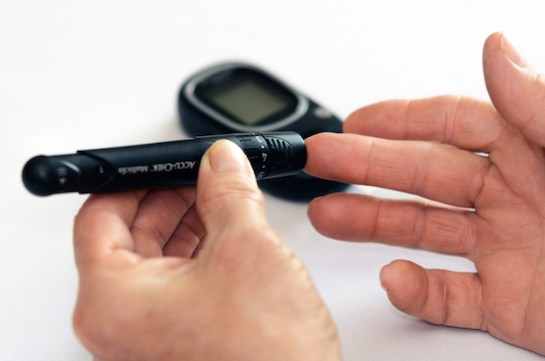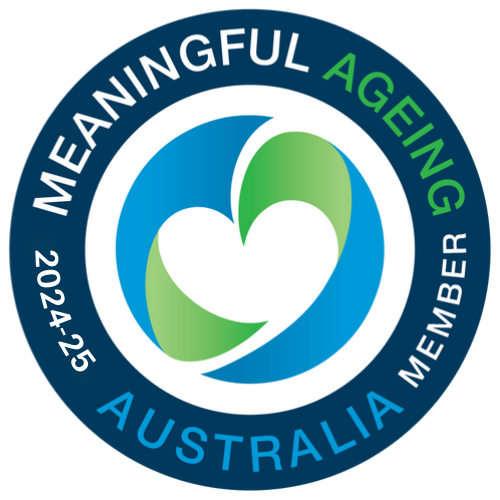It may seem that there is always a lot of emphasis in the media on diabetes as a disease (specifically type 2 diabetes), but there is a reason for that. According to Diabetes Australia:
‘Diabetes is the epidemic of the 21st century and the biggest challenge confronting Australia’s health system. Around 1.8 million Australians have diabetes. This includes all types of diagnosed diabetes (1.2 million known and registered) as well as silent, undiagnosed type 2 diabetes (up to 500,000 estimated)’

It is not only the diabetes itself that is a concern, as diabetes is known to have negative effects on circulation, the heart, liver, and other organs. It is also widely known that diabetes can cause strokes and can make one more susceptible to Covid-19 complications, should you they get it.
Whilst medication plays its part in helping those who are living with diabetes, it is important to know that type 2 diabetes is very manageable (possibly even reversable) through lifestyle changes such as change of diet, regular monitoring, and exercise uptake. This is also where diabetes educators come in.
What is a diabetes educator?
A diabetes educator is a qualified health professional who assists people with the management of diabetes, helping their families and carers in understanding the condition, while empowering them with the knowledge, skills, and confidence to manage their diabetes. You can read more here.
What things can a diabetes educator can help with?
Use of blood glucose meters, insulin pens, insulin pumps and continuous glucose monitors
Pens and pumps may be initially difficult to master. Monitoring machines are essential to management yet can be overwhelming and fiddly. A diabetes educator can help you choose the right monitor and teach you the correct methods for drawing blood, measuring levels and correct use of insulin equipment.
Provide advice and guidance around blood glucose levels
Regular blood sugar monitoring is one of the most crucial factors in successful management of type 1 or type 2 diabetes. Monitoring allows you or carers to recognise what makes numbers go up or down, such as eating different foods, taking medicine, or being active.
Assist in the adoption of healthy eating habits through nutrition education, including meal-planning, weight-loss strategies, and nutrition counselling
Healthy eating and physical activity are important parts of a healthy lifestyle when you are living with diabetes. A healthy meal plan and regular exercise can help keep blood sugar levels within target range. Along with prescribed medication, what you eat, how much you eat, and when you eat are all important in controlling blood sugar levels.
Help understand how medications work
There are several types of medication that can be used to help manage diabetes. Each type of medication works differently to help keep blood sugar levels within range. Most diabetes medications come in tablet form, however, for type 1 diabetes, insulin will most likely be dispensed as an injection.
It is important you always adhere to your treating doctor’s instructions regarding when to take medication and dosage levels. However, a diabetes educator can further assist in helping someone living with diabetes understand side effects, what to do if a dose is missed, how to take or administer their medications, or even how it works with any other medications being taken.
Developing skills for handling stressful situations
It may not be known to many, however, stress, both physical stress and mental stress, has been proven to impact in blood sugar levels, which can be a problem when living with diabetes. By learning to manage stress, a person with diabetes will have another tool readily available to them to help keep blood sugar levels under control. Adopting a positive attitude, helping people talk over their stressors, and meditation and relaxation techniques are just some of the skills a diabetes educator may teach.
How can I access a diabetes educator?
Get in touch with the Vital Home Health Service team if you would like to organise a diabetes educator service for yourself or a loved one. You can learn more about the service here.
Meet Our Diabetes Educators

Melissa Charles
“I graduated university in 2017 and knew from the very beginning that working in the hospital setting was not for me. I wanted to be out in the community breathing in the fresh air and visiting all the lovely people in their homes. I also love how much autonomy being in the community provides me, which I believe has helped me grow in to the nurse I am today. I chose to do further education in diabetes education and management as I want to make a difference in peoples lives and to help them manage their condition better, and in doing so, hopefully avoid the complications diabetes can lead to. In collaboration with the clients’ GP, Endocrinologist, and family and friends, together we can help people live their best life in the comfort of their own home for as long as possible. I look forward to working with you in the future.”








